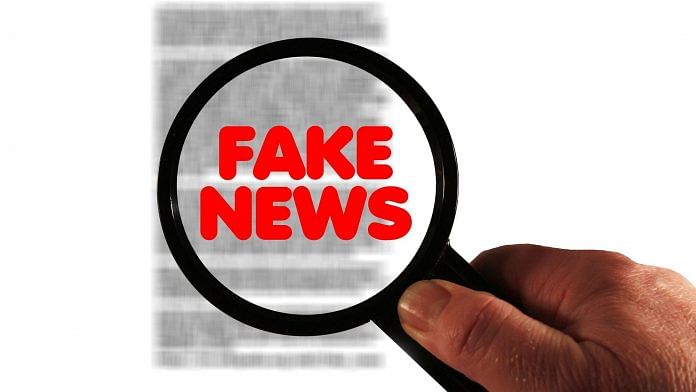On 1 December 2016, a man with an AR-15 semiautomatic rifle entered a pizza restaurant in Washington DC because he believed that Hillary Clinton was sexually abusing children in the basement of that restaurant.
The man had read about this story – the so-called ‘Pizzagate’ scandal – on social media posts and fake news websites and ultimately believed it was true. To his surprise, he found only some pizza dough and a bunch of frightened employees. Luckily, no one was harmed but the anecdote highlights how false news may have dramatic consequences.
Reading this, you may well be tempted to think that fake news and misinformation speak only to a few unsophisticated people with bizarre or extreme beliefs.
But while it has been found that people with poor science knowledge, low cognitive abilities and a tendency to be accepting of weak claims tend to be more inclined to believe false stories, you may want to think carefully about how immune you are to misinformation.
In fact, ask yourself the following questions: How good am I at judging the accuracy of news stories? If I read a fake story or heard a false pundit comment, would I really be able to spot the lie?
People’s true ability to ‘distill the truth’
In our recent study entitled ‘The Ability to ‘Distill the Truth’, Tiziana Assenza, from the Toulouse School of Economics, and I conducted an online experiment to estimate Americans’ true ability to evaluate the accuracy of news items.
To do this, subjects read a series of short news stories on different topics from a wide range of sources. Independent fact-checking organizations had classified half of these news items as containing accurate information, and the remaining half as containing incorrect and demonstrably false information. For each news story, subjects had to state whether they believed that it contained accurate information or not.
Despite a large share of people with great confidence in their ability to cut through misinformation, we found that most people have limited ability to differentiate between fake and true news stories.
In fact, on average, participants in our experiments provided the correct evaluation of veracity only in 62% of the news stories they saw, and only 14% of subjects were able to discern the veracity of information in at least 80% of the news stories.
The economic cost of fake news
The viral and rapid diffusion of misinformation exposes people with poor abilities to discern the accuracy of news stories to greater chances of making adverse decisions, including financial choices. In fact, about 63% of Americans argue that the dissemination of misinformation and fake news has made it more difficult to make important financial decisions.
Moreover, the spread of misinformation is detrimental not only to individuals but also to society as a whole. It can generate significant economic losses through several channels of the economy, such as higher costs for public health, manipulated returns and reputation management costs for companies.
For example, in 2019, Metro Bank faced an 11% drop in stock market capitalization after false rumours on social media reported it was experiencing financial problems.
Reducing vulnerability to misinformation
The events we have lived through in the last decade – from Brexit to the election of Donald Trump and the COVID-19 pandemic – have created great concern about the role played by false news and have motivated policymakers to move the contrast to misinformation to the top of their agenda.
While the policy debate focuses mostly on the role played by media companies in the creation and diffusion of fake news, scholars have proposed different approaches to increase people’s ability to discern the truthfulness of information.
People often share misinformation on social media simply because their attention is on factors unrelated to accuracy, such as the desire to please followers.
Accordingly, a simple intervention, which asks individuals to think about the accuracy of the news story they read before sharing it, has been found to increase the quality of the news that people share on social media.
Improve awareness to combat fake news
In our research, we tested a different kind of intervention: improving people’s awareness by informing them of their true ability to differentiate between fake and true news stories. To do this, we randomly selected half the participants and told them the number of news stories that they correctly identified as accurate or inaccurate.
We found that subjects who received this informative feedback increased their awareness of the problems related to misinformation and showed a greater desire to act against the risk of being affected by it.
In particular, these subjects exhibited a 6.74% higher desire to pay for products that cover against the risk of being harmed by misinformation. In practice, this can translate into greater spending for services that reduce their exposure to made-up news and information – such as online fact-checkers.
So, while more policy action is certainly needed to contrast the creation and diffusion of fake news, interventions like ours represent a step towards reducing people’s susceptibility to misinformation and can contribute, at least indirectly, to improving the quality of individual decisions.



